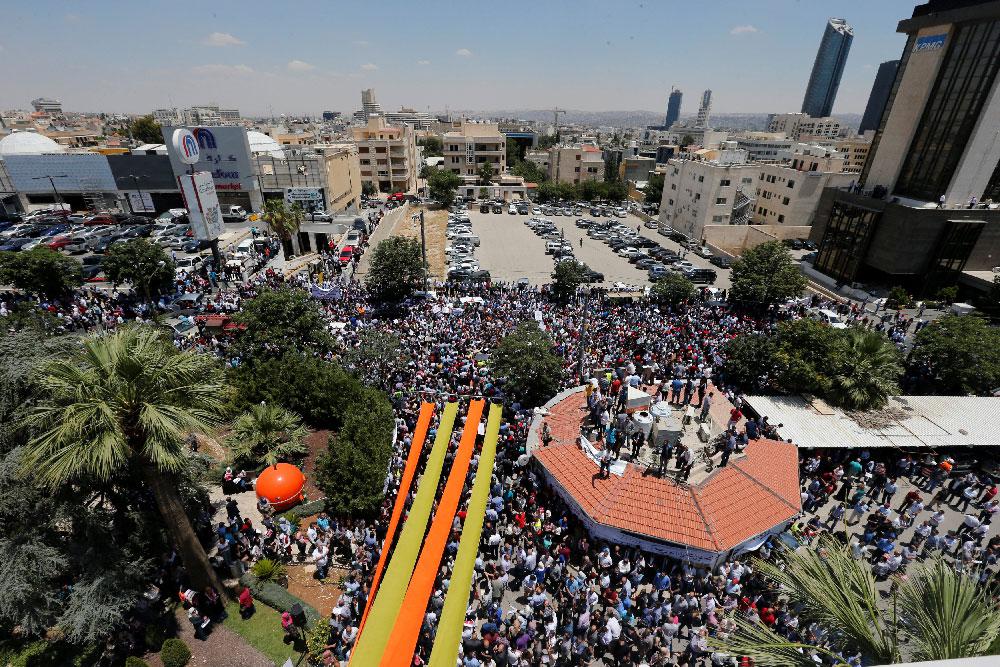Jordan faces widespread strikes as tax hikes hit
AMMAN - Thousands of Jordanians protested tax hikes that accompanied an extensive bailout agreement with the International Monetary Fund (IMF). The strike was called by Jordan’s unions for May 30 in response to the tax increases the government said were necessary to kick-start the economy.
Unions representing public- and private-sector employees accused the government of giving in to IMF demands and passing on the country’s debt to its middle class, already struggling under high prices. Protesters at the Amman headquarters of the Professional Associations Union carried placards accusing politicians of corruption and squandering public funds.
“I can hardly afford anything with my salary. We are taxed for the air we breathe and now they are also looking to rip off our salaries. Everyone knows the law is unjust and it has to be withdrawn,” Hatem Samara, an engineer, told Reuters.
Amendments to Jordan’s tax system would essentially double the income tax, a key condition to a 3-year IMF programme to increase state revenues and bring down Jordan’s public debt to 77% of gross domestic product by 2021. Much of that debt stems from governments adopting an expansionist fiscal policy typified by job creation within the bloated public sector and by large subsidies on bread and other staple goods.
The income tax threshold will be lowered significantly, with higher levies placed on banks and industrial companies. These come when economic growth has been stagnant due to extensive regional turmoil and the private sector warning of shrinking consumer demand.
Jordan increased taxes this year on many foodstuffs and consumer goods by unifying sales tax rates at 16%, in addition to removing many exemptions on basic goods.
Unlike many of its neighbours, Jordan produces no oil and, with little land available for farming, relies upon mining, heavy industry, construction and a growing banking sector to fuel its economy.
Amman’s ability to continue its costly subsidy system while maintaining an unwieldy state bureaucracy, is looking untenable without increased tax revenues, foreign capital inflow or a significant foreign aid.
Tax evasion is widespread throughout the country among both individuals and companies. A study by the Jordanian Income and Sales Tax Department stated that approximately 132,000 companies were avoiding paying their full tax share. The Jordanian government and the IMF estimate that about 4% of individuals paid any income tax.
The government earlier this year removed bread subsidies entirely, doubling the price of bread in some parts of the country, whose population of 8 million is facing growing unemployment and poverty rates.
Further pressure on the economy comes from the more than 600,000 refugees who fled to Jordan to avoid the war in Syria.
Despite widespread criticism, the Jordanian government argues the reforms will reduce social disparities in the kingdom by increasing the tax levy on high-income earners while leaving low-paid, public-sector employees largely unscathed.






